 Poverty in developed countries may never be overcome, simply because the rich no longer … need the poor to get rich. … The misfortune of being exploited has been succeeded by the still worse misfortune of no longer being exploitable. Read more
Poverty in developed countries may never be overcome, simply because the rich no longer … need the poor to get rich. … The misfortune of being exploited has been succeeded by the still worse misfortune of no longer being exploitable. Read more
Tag Archives: inequality
Joseph Stiglitz on inequality
 The top 1 percent have the best houses, the best educations, the best doctors, and the best lifestyles, but there is one thing that money doesn’t seem to have bought: an understanding that their fate is bound up with how the other 99 percent live. Throughout history, this is something that the top 1 percent eventually do learn. Too late. Read more
The top 1 percent have the best houses, the best educations, the best doctors, and the best lifestyles, but there is one thing that money doesn’t seem to have bought: an understanding that their fate is bound up with how the other 99 percent live. Throughout history, this is something that the top 1 percent eventually do learn. Too late. Read more
Down so low we dare not speak
 The reason pessimists are multiplying is that we dishonor the intellect and the knowledge of history in this country by refusing to admit that corruption is the source of our ills. It takes no great mental effort to realize that there’s no effective political forces either in Washington or locally that are able to do anything serious to correct our self-delusions about being the world’s policeman, because any sensible solution would seriously cut into profits of this or that interest group. Read more
The reason pessimists are multiplying is that we dishonor the intellect and the knowledge of history in this country by refusing to admit that corruption is the source of our ills. It takes no great mental effort to realize that there’s no effective political forces either in Washington or locally that are able to do anything serious to correct our self-delusions about being the world’s policeman, because any sensible solution would seriously cut into profits of this or that interest group. Read more
Breaking the self-destructive meritocratic spell
 The problem in America is not that a minority has grown super rich, but that for decades now, it has done so to the detriment of the lower social classes. The big question is: why does the majority in a seemingly free society tolerate this, and even happily vote against its own economic interests? A plausible answer is that it is under a self-destructive meritocratic spell … Rather than move towards greater fairness and egalitarianism, it promotes a libertarian gospel of the free market with minimal regulation, taxation, and public safety nets. What would it take to break this spell? Read more
The problem in America is not that a minority has grown super rich, but that for decades now, it has done so to the detriment of the lower social classes. The big question is: why does the majority in a seemingly free society tolerate this, and even happily vote against its own economic interests? A plausible answer is that it is under a self-destructive meritocratic spell … Rather than move towards greater fairness and egalitarianism, it promotes a libertarian gospel of the free market with minimal regulation, taxation, and public safety nets. What would it take to break this spell? Read more
What Wisconsin hath wrought
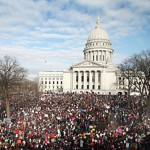 It’s time to focus on the corporate CEOs and speculators. … “In U.S. states facing a budget shortfall, revenues from corporate taxes have declined $2.5 billion in the last year. In Wisconsin, two-thirds of corporations pay no taxes, and the share of state revenue from corporate taxes has fallen by half since 1981.” The same is true in other states. These facts must be stressed, repeatedly and aggressively, if the debate is going to shift from cuts in public services and education to demands for fair taxes and the revenues necessary for services and schools. Read more
It’s time to focus on the corporate CEOs and speculators. … “In U.S. states facing a budget shortfall, revenues from corporate taxes have declined $2.5 billion in the last year. In Wisconsin, two-thirds of corporations pay no taxes, and the share of state revenue from corporate taxes has fallen by half since 1981.” The same is true in other states. These facts must be stressed, repeatedly and aggressively, if the debate is going to shift from cuts in public services and education to demands for fair taxes and the revenues necessary for services and schools. Read more
It’s cheaper to let the sick die
 Unfortunately, he [Gawande] dismisses what, from the standpoint of reducing total health-care expenditures, is the single most serious drawback to such an approach; namely, the probability that effectively case-managed patients will survive longer than they would without intensive ambulatory care and will thereby offset their reduced frequency of hospitalization with an increase in their time at risk. If an intervention reduces a patient’s frequency of hospitalization from ten admissions annually to five, but simultaneously increases that patient’s survival from one year to two, the intervention is fully justified medically but is a wash from a cost perspective. If it increases that patient’s survival to two years and one month, it’s a net liability. Read more
Unfortunately, he [Gawande] dismisses what, from the standpoint of reducing total health-care expenditures, is the single most serious drawback to such an approach; namely, the probability that effectively case-managed patients will survive longer than they would without intensive ambulatory care and will thereby offset their reduced frequency of hospitalization with an increase in their time at risk. If an intervention reduces a patient’s frequency of hospitalization from ten admissions annually to five, but simultaneously increases that patient’s survival from one year to two, the intervention is fully justified medically but is a wash from a cost perspective. If it increases that patient’s survival to two years and one month, it’s a net liability. Read more
Daniel T. Rodgers on equality and inequality
 Rawls’s cautious, prudential argument for equality could not be uncoupled in the minds of conservative intellectuals from their distress at the new affirmative action projects, their anger at busing for racial equalization, and their recoil from the gender-blurring prospects of the Equal Rights Amendment. The once common distinction between equality of opportunity and the (dangerous) passion for equality of results fused into a general criticism of equality-driven politics in all its forms. Freedom, merit, and excellence: these, not equality, were the aims of the good society. Michael Novak put the conservative consensus succinctly in 1990: “The rage for equality is a wicked project.” Read more
Rawls’s cautious, prudential argument for equality could not be uncoupled in the minds of conservative intellectuals from their distress at the new affirmative action projects, their anger at busing for racial equalization, and their recoil from the gender-blurring prospects of the Equal Rights Amendment. The once common distinction between equality of opportunity and the (dangerous) passion for equality of results fused into a general criticism of equality-driven politics in all its forms. Freedom, merit, and excellence: these, not equality, were the aims of the good society. Michael Novak put the conservative consensus succinctly in 1990: “The rage for equality is a wicked project.” Read more
Ezra Klein on inequality
 Whatever our eventual conclusions on inequality, we’re going to have trouble acting on them if the political system can’t bring itself to care about the average American a little bit more. … We at least need to recognize what it is that we keep doing: green-lighting the policies that make the rich richer or, in the case of the crisis, keep them rich, while dithering and drifting on the problems and needs of the vast middle. Read more
Whatever our eventual conclusions on inequality, we’re going to have trouble acting on them if the political system can’t bring itself to care about the average American a little bit more. … We at least need to recognize what it is that we keep doing: green-lighting the policies that make the rich richer or, in the case of the crisis, keep them rich, while dithering and drifting on the problems and needs of the vast middle. Read more
The new economic reality
 In a recent internal debate, he said, one of his senior colleagues had argued that the hollowing-out of the American middle class didn’t really matter. “His point was that if the transformation of the world economy lifts four people in China and India out of poverty and into the middle class, and meanwhile means one American drops out of the middle class, that’s not such a bad trade,” the CEO recalled. Read more
In a recent internal debate, he said, one of his senior colleagues had argued that the hollowing-out of the American middle class didn’t really matter. “His point was that if the transformation of the world economy lifts four people in China and India out of poverty and into the middle class, and meanwhile means one American drops out of the middle class, that’s not such a bad trade,” the CEO recalled. Read more
The complex signaling function of hair
 In popular culture, to have white skin and gray hair is to be old (unemployable and unattractive) or menopausal (unproductive and unsexual). An attempt to retain their hair color (natural or chosen) is, for certain women, an attempt to retain a currency of employability, utility and desirability. Read more
In popular culture, to have white skin and gray hair is to be old (unemployable and unattractive) or menopausal (unproductive and unsexual). An attempt to retain their hair color (natural or chosen) is, for certain women, an attempt to retain a currency of employability, utility and desirability. Read more
Imagine a future without cosmetic surgery
 A less pithy title – and what I really mean – would be “Imagine a future where aesthetic cosmetic surgery wasn’t motivated by the images of celebrities/advertising/porn and by the dissatisfaction with normal bodies that these images create.”
A less pithy title – and what I really mean – would be “Imagine a future where aesthetic cosmetic surgery wasn’t motivated by the images of celebrities/advertising/porn and by the dissatisfaction with normal bodies that these images create.”
In the concluding chapter of her new book, American Plastic: Boob Jobs, Credit Cards, and the Quest for Perfection, Laurie Essig suggests we might try creating and joining reality-check groups before going under the knife. We could weigh our decision, benefit from the input of friends, then relentlessly pursue “perfect beauty at any cost” if we wished. Read more
Union busting and the inequality of wealth
 In principle, every American citizen has an equal say in our political process. In practice, of course, some of us are more equal than others. Billionaires can field armies of lobbyists; they can finance think tanks that put the desired spin on policy issues; they can funnel cash to politicians with sympathetic views (as the Koch brothers did in the case of Mr. Walker). On paper, we’re a one-person-one-vote nation; in reality, we’re more than a bit of an oligarchy, in which a handful of wealthy people dominate. Given this reality, it’s important to have institutions that can act as counterweights to the power of big money. And unions are among the most important of these institutions. Read more
In principle, every American citizen has an equal say in our political process. In practice, of course, some of us are more equal than others. Billionaires can field armies of lobbyists; they can finance think tanks that put the desired spin on policy issues; they can funnel cash to politicians with sympathetic views (as the Koch brothers did in the case of Mr. Walker). On paper, we’re a one-person-one-vote nation; in reality, we’re more than a bit of an oligarchy, in which a handful of wealthy people dominate. Given this reality, it’s important to have institutions that can act as counterweights to the power of big money. And unions are among the most important of these institutions. Read more
Feeling sorry for plastic surgeons
 They meant to be reconstructive surgeons, they meant to fix people after horrific accidents or cancer, and they started doing some boob jobs on the side and it started to eat up more and more of their practice because it was so lucrative. They want to send their kids to nice schools, they have mortgages, they have family, and you could see that they felt a little bit helpless as well. It wasn’t what they meant to do. They seemed just as much products of the system as the middle-aged women going in for a facelift or boob job. They were hoping for a better future.
They meant to be reconstructive surgeons, they meant to fix people after horrific accidents or cancer, and they started doing some boob jobs on the side and it started to eat up more and more of their practice because it was so lucrative. They want to send their kids to nice schools, they have mortgages, they have family, and you could see that they felt a little bit helpless as well. It wasn’t what they meant to do. They seemed just as much products of the system as the middle-aged women going in for a facelift or boob job. They were hoping for a better future.
Read more
Love and marriage in China
 Because China has never had a humanist revolution, sex and marriage have always been relatively divorced. That is why many Asian cultures have an immensely commercialised and categorised [sex industry]. … [I]f a husband is a man of means, and has a significant income, then he can take on a second wife without violating his obligation to his first wife. … This does not mean that the Chinese are incapable of love, it means that romantic love competes with that transactional element in a society where people are insecure because their individual interests are not institutionally protected. Read more
Because China has never had a humanist revolution, sex and marriage have always been relatively divorced. That is why many Asian cultures have an immensely commercialised and categorised [sex industry]. … [I]f a husband is a man of means, and has a significant income, then he can take on a second wife without violating his obligation to his first wife. … This does not mean that the Chinese are incapable of love, it means that romantic love competes with that transactional element in a society where people are insecure because their individual interests are not institutionally protected. Read more
Inequality and the financial crisis
 “Inequality has been getting worse. … One thing that this has done is it has encouraged governments, who are aware of the resentment caused by the rising inequality, to try to take some kind of steps to make it more politically acceptable.” Rajan has a chapter called ‘Let them eat credit’. “The US in particular has stimulated the housing market, it has subsidised lending to people, which drove up home prices in an unsustainable way.” Read more
“Inequality has been getting worse. … One thing that this has done is it has encouraged governments, who are aware of the resentment caused by the rising inequality, to try to take some kind of steps to make it more politically acceptable.” Rajan has a chapter called ‘Let them eat credit’. “The US in particular has stimulated the housing market, it has subsidised lending to people, which drove up home prices in an unsustainable way.” Read more
Health care in America: You get what you deserve
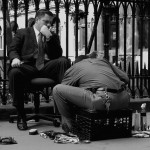 More than most societies, Americans believe that people rise or fall as a result of their own efforts, and therefore get what they deserve. Critically, when we say this is a nation of individualists, we don’t just mean Americans embrace individualism as a social ethic. Underpinning this ethic is tendency to interpret the world in highly individualistic terms. We distribute blame and praise to individuals because we believe that it is their individual actions, for better or worse, that matter. People get what they deserve. Read more
More than most societies, Americans believe that people rise or fall as a result of their own efforts, and therefore get what they deserve. Critically, when we say this is a nation of individualists, we don’t just mean Americans embrace individualism as a social ethic. Underpinning this ethic is tendency to interpret the world in highly individualistic terms. We distribute blame and praise to individuals because we believe that it is their individual actions, for better or worse, that matter. People get what they deserve. Read more
Where the poor live: The more polluted part of town
 In most of the northern hemisphere, winds blow from west to east. So in the days of heavy industrial pollution from the smoke stack industries, the air was cleaner on the west side of town. Living in the east-end was less desirable and less expensive. Another factor may have been the direction in which the local river flowed. Rivers carried sewage, and if the river flowed west to east, as it does in London, that’s another reason the east-end was less desirable. Read more
In most of the northern hemisphere, winds blow from west to east. So in the days of heavy industrial pollution from the smoke stack industries, the air was cleaner on the west side of town. Living in the east-end was less desirable and less expensive. Another factor may have been the direction in which the local river flowed. Rivers carried sewage, and if the river flowed west to east, as it does in London, that’s another reason the east-end was less desirable. Read more
Income inequality and American politics
 US income inequality is not — or not simply – due to the economic consequences of globalization, like the shift from manufacturing jobs to service sector jobs, with the ensuing loss of pay and benefits. It’s also due to what’s happened in American politics. Business interests — represented by Republicans — have been much better at organizing themselves than have labor unions and interest groups that represent the middle class. And the cost of campaigning – which increased enormously once TV became the dominant campaign medium – has made Democrats willing to support legislation that favors the interests of those with money to spare. Read more
US income inequality is not — or not simply – due to the economic consequences of globalization, like the shift from manufacturing jobs to service sector jobs, with the ensuing loss of pay and benefits. It’s also due to what’s happened in American politics. Business interests — represented by Republicans — have been much better at organizing themselves than have labor unions and interest groups that represent the middle class. And the cost of campaigning – which increased enormously once TV became the dominant campaign medium – has made Democrats willing to support legislation that favors the interests of those with money to spare. Read more
Why the US doesn’t have universal health care
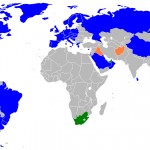 Most high-income countries today have some form of national health insurance. Why is the US different? What stands in the way? … How to explain American opposition to universal health care. “Nearly every time this country has expanded its social safety net or tried to guarantee civil rights, passionate opposition has followed.” Read more
Most high-income countries today have some form of national health insurance. Why is the US different? What stands in the way? … How to explain American opposition to universal health care. “Nearly every time this country has expanded its social safety net or tried to guarantee civil rights, passionate opposition has followed.” Read more
Can Congress Force You to Be Healthy?
 Yes, we want affordable health care. No, we don’t want the government interfering in our personal lives. Don’t get emotionally manipulated into believing we can’t have the first without the second. Read more
Yes, we want affordable health care. No, we don’t want the government interfering in our personal lives. Don’t get emotionally manipulated into believing we can’t have the first without the second. Read more
Professionalism of UK doctors questioned over health inequalities
 Where was the medical profession? Doctors are supposed to feel an acute responsibility to deliver the best health service to the whole population. It is on this basis that they ask the public and government to support generous pay increases and terms and conditions of service. These attitudes and behaviours are what we commonly mean by professionalism. It seems that doctors failed completely to live up to the rhetoric of their commitment to professional values. Read more
Where was the medical profession? Doctors are supposed to feel an acute responsibility to deliver the best health service to the whole population. It is on this basis that they ask the public and government to support generous pay increases and terms and conditions of service. These attitudes and behaviours are what we commonly mean by professionalism. It seems that doctors failed completely to live up to the rhetoric of their commitment to professional values. Read more
Life expectancy of the rich and the poor
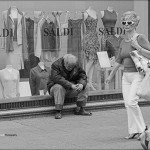 While average life expectancy is indeed rising, it’s doing so mainly for high earners, precisely the people who need Social Security least. Life expectancy in the bottom half of the income distribution has barely inched up over the past three decades. So the Bowles-Simpson proposal is basically saying that janitors should be forced to work longer because these days corporate lawyers live to a ripe old age. Read more
While average life expectancy is indeed rising, it’s doing so mainly for high earners, precisely the people who need Social Security least. Life expectancy in the bottom half of the income distribution has barely inched up over the past three decades. So the Bowles-Simpson proposal is basically saying that janitors should be forced to work longer because these days corporate lawyers live to a ripe old age. Read more
The post-midterm world
 Conservatives will not find it much easier than liberals to govern a society where so many people feel themselves cheated — and where so many refuse to believe that the so-called experts care for the interests of anyone beyond their narrow coterie and class. Read more
Conservatives will not find it much easier than liberals to govern a society where so many people feel themselves cheated — and where so many refuse to believe that the so-called experts care for the interests of anyone beyond their narrow coterie and class. Read more
Healthy lifestyles serve political interests
 Ultimately, decisions about a country’s health are not a matter of science, medicine, research, or scholarship. They are essentially political choices. When the US leans right, the solution to the health care crisis is to emphasize personal responsibility (aka prevention through healthy lifestyles). When the country leans left, there’s increased interest in the “negative externalities” of advanced market capitalism (pollution, climate change, ethnic inequities). Neither one is exclusively right or wrong. But when the political climate puts the spotlight on patients who are guilty of unhealthy lifestyles, the focus goes dim on those “fundamental mechanisms leading to disease” that have nothing to do with lifestyle. We lose sight of the genuine solutions that an increased focus on those mechanisms could provide. Read more
Ultimately, decisions about a country’s health are not a matter of science, medicine, research, or scholarship. They are essentially political choices. When the US leans right, the solution to the health care crisis is to emphasize personal responsibility (aka prevention through healthy lifestyles). When the country leans left, there’s increased interest in the “negative externalities” of advanced market capitalism (pollution, climate change, ethnic inequities). Neither one is exclusively right or wrong. But when the political climate puts the spotlight on patients who are guilty of unhealthy lifestyles, the focus goes dim on those “fundamental mechanisms leading to disease” that have nothing to do with lifestyle. We lose sight of the genuine solutions that an increased focus on those mechanisms could provide. Read more
The politics behind personal responsibility for health
 Another great example of neoliberal insistence on personal responsiblity: In a 1980 report on the impact of carbon dioxide on climate change – a report requested by Congress – physicist and free-marketer William Nierenberg argued that we should do nothing to prevent climate change because people could simply migrate. “Not only have people moved [in the past], but they have taken with them their horses, dogs, children, technologies, crops, livestock, and hobbies. It is extraordinary how adaptable people can be.” Read more
Another great example of neoliberal insistence on personal responsiblity: In a 1980 report on the impact of carbon dioxide on climate change – a report requested by Congress – physicist and free-marketer William Nierenberg argued that we should do nothing to prevent climate change because people could simply migrate. “Not only have people moved [in the past], but they have taken with them their horses, dogs, children, technologies, crops, livestock, and hobbies. It is extraordinary how adaptable people can be.” Read more
Water privatization in South Africa: Prepaid meters
 The supply of water was controlled by prepaid water meters that were installed for each household. Once the “free” allocation was exhausted, the water meters prevented additional water from flowing. That included emergency situations, such as the need to put out a fire. When a fire broke out in Phiri, an urban neighborhood of Soweto in Johannesburg, the outcome was tragic. Read more
The supply of water was controlled by prepaid water meters that were installed for each household. Once the “free” allocation was exhausted, the water meters prevented additional water from flowing. That included emergency situations, such as the need to put out a fire. When a fire broke out in Phiri, an urban neighborhood of Soweto in Johannesburg, the outcome was tragic. Read more
The Cochabamba water wars
 in the developing world, over a billion people lack access to safe drinking water. Many women spend over six hours a day collecting enough water for their families (and wait until after dark to relieve themselves). When it comes to sanitation, 2.6 billion do not even have access to “improved” pit latrines – open pits with simple modifications to reduce flies and odors. Read more
in the developing world, over a billion people lack access to safe drinking water. Many women spend over six hours a day collecting enough water for their families (and wait until after dark to relieve themselves). When it comes to sanitation, 2.6 billion do not even have access to “improved” pit latrines – open pits with simple modifications to reduce flies and odors. Read more
Water privatization: An investment bonanza
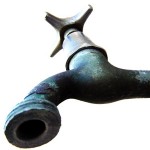 From Buenos Aires to Atlanta to Jakarta, the liquid everybody needs–and will need a lot more of in the future–is going private, creating one of the world’s great business opportunities. The dollars at stake are huge. … Water promises to be to the 21st century what oil was to the 20th century: the precious commodity that determines the wealth of nations. … To turn a profit, [the privatizing corporation] must collect far more in water charges than it pays out in salaries, equipment, and interest. Read more
From Buenos Aires to Atlanta to Jakarta, the liquid everybody needs–and will need a lot more of in the future–is going private, creating one of the world’s great business opportunities. The dollars at stake are huge. … Water promises to be to the 21st century what oil was to the 20th century: the precious commodity that determines the wealth of nations. … To turn a profit, [the privatizing corporation] must collect far more in water charges than it pays out in salaries, equipment, and interest. Read more
The dismal future of unemployment
 The only thing highly developed countries can do in the face of cheap foreign labor is to play their ace card. Where these countries excel is with industries that are knowledge intensive – “capital-intensive advanced industries where knowledge counts for everything.” But we are unable to teach the skills required for those jobs as rapidly as the need for employment requires. Those skills constantly go out of date. Read more
The only thing highly developed countries can do in the face of cheap foreign labor is to play their ace card. Where these countries excel is with industries that are knowledge intensive – “capital-intensive advanced industries where knowledge counts for everything.” But we are unable to teach the skills required for those jobs as rapidly as the need for employment requires. Those skills constantly go out of date. Read more
Michelle Chappel – No Place Like Home
 October 10, 2010 — 10/10/10 — is World Homeless Day. My friend Michelle Chappel Millis has written a song and made a video in support of this cause. It’s called “No Place Like Home.”
October 10, 2010 — 10/10/10 — is World Homeless Day. My friend Michelle Chappel Millis has written a song and made a video in support of this cause. It’s called “No Place Like Home.”
Michelle encourages all viewers to share the video – here’s the YouTube link – as a way to raise awareness of the problem of homelessness. If you’re so moved, please contribute to registered charities in your locality. Read more

